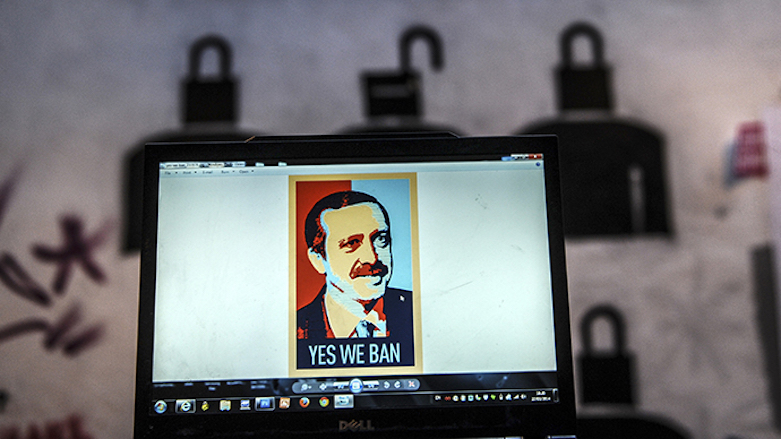Detentions for peace tweets new low for Turkey: HRW

ERBIL, Kurdistan Region (Kurdistan 24) – Turkey’s detention and prosecution of large numbers of people over social media posts critical of government policies and supportive of a Kurdish-Turkish peace constituted a new low for Ankara, Human Rights Watch (HRW) said on Tuesday.
Authorities increased the scope and intensity of a country-wide crackdown on dissenting voices as the Turkish army began its invasion of Afrin in Syrian Kurdistan to oust US-armed Kurdish forces from the region in late January.
Until late February, police detained 648 people over their social media posts criticizing Turkey’s military campaign against Syrian Kurds.
“Detaining and prosecuting people for tweets calling for peace is a new low for Turkey’s government,” Hugh Williamson, Europe, and Central Asia director at HRW, said.
“Turkish authorities should respect people’s right to peacefully criticize any aspect of government policy, including military operations, and drop these absurd cases,” Williamson added.

HRW noted that the recent social media crackdown had targeted a wide range of people, affecting journalists, human rights activists, politicians—including four members of parliament from the pro-Kurdish Peoples’ Democratic Party (HDP)—members of nongovernmental organizations, academics, construction workers, physicians, and high school and university students.
Examining cases against individuals held or prosecuted by Turkish authorities, HRW said that “some of the police raids and criminal investigations were being used as a form of punishment rather than out of genuine belief that criminal behavior has occurred.”
“Even if a case does not go to trial or ends in acquittal, people labeled as terrorism suspects face adverse consequences due to police investigations and criminal proceedings, including possible loss of employment and social exclusion,” it added.
Turkish judiciary earlier this month began forming special units to keep an eye on the citizens’ use of social media and prevent what the government deems “terrorist propaganda” from spreading.
Lawyers talking to HRW revealed that people putting out critical statements on social media were increasingly being investigated for an alleged “membership of an armed terrorist organization,” rather than association or propaganda offenses.
According to a 2017 report by the Reuters Institute for the Study of Journalism, the use of Facebook and Twitter in Turkey have both declined, possibly due to fears of government surveillance.
Some of those that HRW had interviewed said people in Turkey now think twice before posting or reacting to online content criticizing the government.
Editing by Karzan Sulaivany
